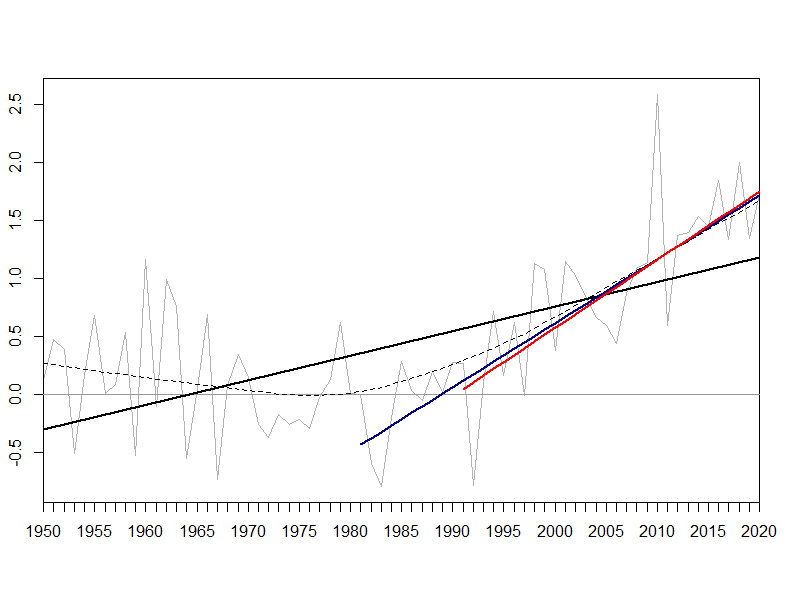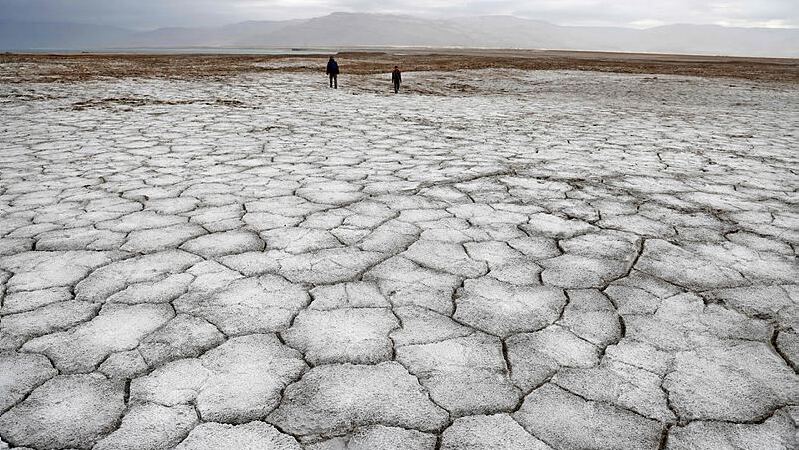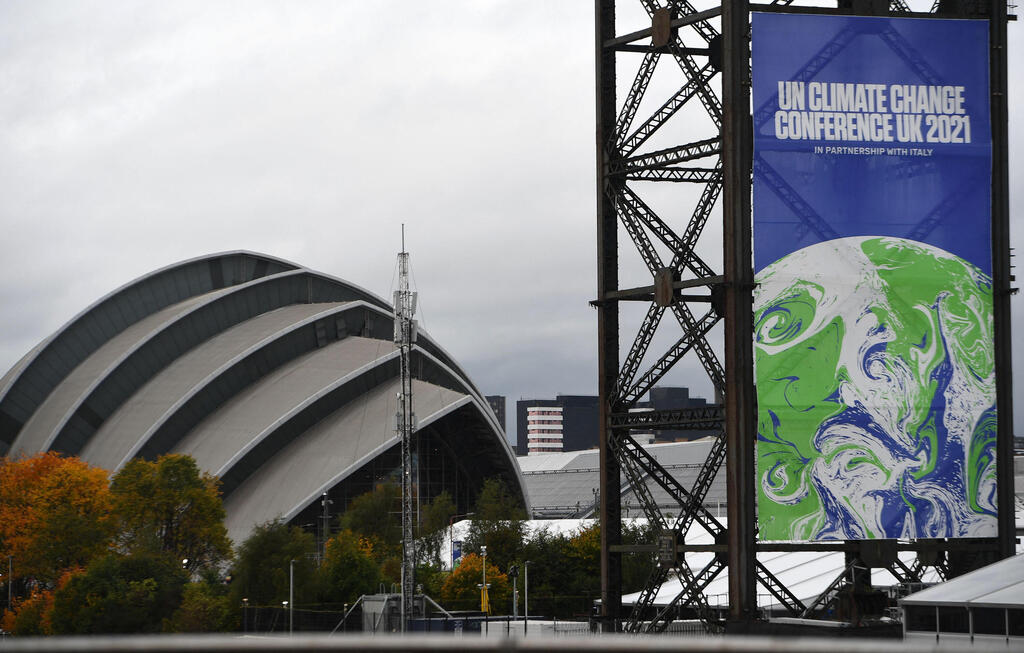Getting your Trinity Audio player ready...
As the climate conference in Glasgow enters its second day on Monday, data from the Israeli environmental bodies reveals that Israel is warming up almost twice as fast as the rest of the world.
Data collected by Israel Meteorological Service (IMS) and Knesset Research and Information Center shows the changes in the Israeli climate since the 1950s until the present day.
3 View gallery


The average temperature increase in Israel over the past few decades, black line - since the 1950s, blue line - since 1980s and red line - since 1990s
In November 2019, the IMS published a comprehensive climate change report that showed Israel had warmed by an average of 1.4 degrees Celsius from 1950 to 2017, which is an average of about 0.21 degrees per decade. A follow-up report published Sunday by the director of the Meteorological Service's Climate Department, Avner Forshpan, and Dr. Yitzhak Yosef of the IMS suggests that between the years 2018-2020, the average warming up rate has increased from 1.4 to 1.5 degrees Celsius.
Between 1950-2020 no steady increase has been recorded. For instance, in the late 1980s a slight drop in the average temperatures has been recorded, but since the early 1990s, there has been a significant temperature increase.
Between the years 1991-2020, an increase of 1.77 degrees Celsius had been recorded, with an average of 0.59 degrees Celsius per decade.
This suggests that the average warming up rate in the last three decades is nearly three times greater than the average rate calculated across all seven decades from 1950 up until today.
According to the Intergovernmental Panel on Climate Change (IPCC), global temperature increased by an average of 1.2 degrees Celsius in the last 150 years. But this temperature is calculated as an average having been collected from thousands of meteorological stations all over the world, including those located in the oceans that cover some 70 percent of the planet's surface. The warming rate of the sea is lower than that of the land, so, as a result, it misleadingly lowers the global average.
If we take the warming up rate on land alone, we see the average stands at about 1.18 degrees Celsius between the years 1980-2020, or 0.29 degrees per decade. This is compared to 0.54 degrees warming up rate for Israel - nearly twice as high. From the 1980s, the temperature in the country rose by some 2.1 degrees Celsius.
The authors of the report said the discrepancy is due to the fact that Israel is in the hotbed of the global warming process, and therefore, requires the country to prepare more rapidly for the effects of climate change in the region.
Another report, which explains the trends in temperature change from now until 2100, shows the current climate change patterns in the country will continue, and even accelerate in the following years. By the end of 2100, the average temperature in Israel is expected to increase by 1.5 degrees Celsius if global emissions are reduced as promised in the Glasgow summit, or by 4 degrees Celsius if they are not.
The authors of the report added the climate changes that are expected in the Middle East require not only the preparation of Israel but also its neighbors. The lack of preparedness of the countries in the region for climate changes can undermine regional stability and adversely affect Israel's security as well.



